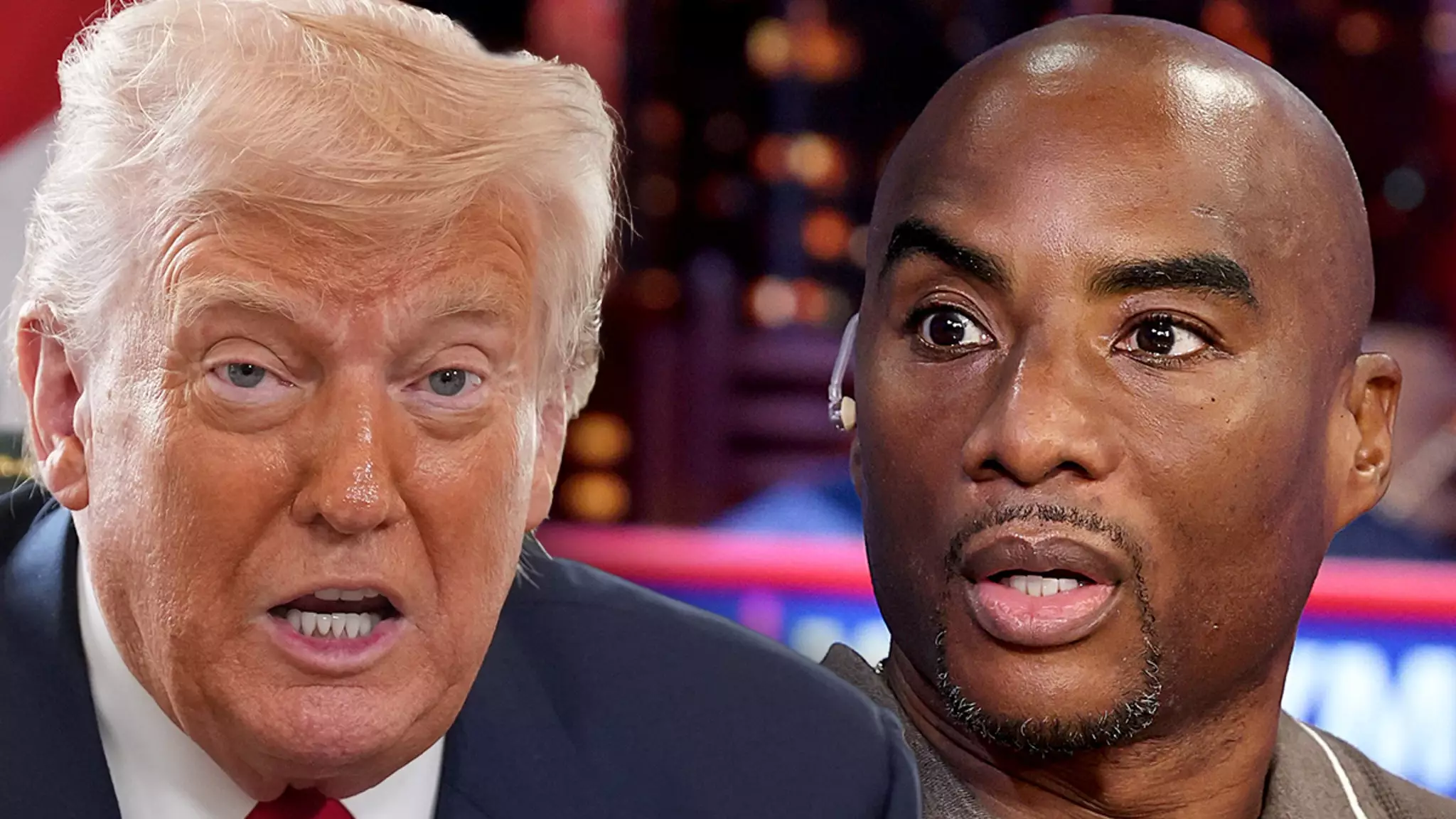In today’s highly interconnected media landscape, the lines between entertainment and politics continue to blur, often amplifying the influence of public figures beyond their traditional domains. When a radio host like Charlamagne tha God, known primarily for his work on “The Breakfast Club,” publicly critiques a political figure such as Donald Trump, it sparks a ripple effect that extends far beyond the entertainment sphere. This intersection raises critical questions about the power of media personalities to shape political narratives and influence public opinion. Rather than engaging in substantive debate, the response from political leaders frequently devolves into personal disparagements, revealing a deeper insecurity about losing control of the narrative.
The influence wielded by celebrities and media figures is unparalleled in contemporary politics. Charlamagne’s remarks about the Jeffrey Epstein scandal as a potential catalyst for a conservative resurgence reflect a nuanced understanding of political undercurrents. Yet, Trump’s reaction—calling him a “racist sleazebag” and “low IQ individual”—illustrates how political discourse has become a battleground centered more on personal insults than on policy or ideology. This shift not only trivializes meaningful debate but also contributes to a toxic environment where rhetoric overshadows substance.
The Toxic Culture of Political Retribution
The exchange epitomizes a broader trend of heightened hostility in political conversations. When Trump dismisses Charlamagne’s analysis outright, he reduces complex political processes to insults, dismissing critical viewpoints as irrelevant or malicious. Such behavior perpetuates a cycle of retaliatory snark, making it difficult to foster constructive dialogue or seek common ground. The use of social media as a weapon further intensifies this dynamic; platforms like Truth Social allow leaders to bypass traditional media gatekeeping and attack critics directly, often resorting to name-calling and inflammatory language.
This approach has significant consequences for public discourse. It fosters division, encourages echo chambers, and discourages nuanced understanding. Trump’s accusations, dismissals, and rhetorical grandstanding reveal an underlying insecurity about challenges to his authority. His fixation on Charlamagne’s intelligence and loyalty—not the content of his critique—reflects an inability or unwillingness to engage with dissent critically. Instead, it underscores a tendency toweaponize personal reputation as a shield against criticism, ultimately undermining the legitimacy of political debate.
Redefining Leadership in the Digital Age
The Trump-Charlamagne exchange exemplifies a broader shift in how leadership and influence operate in the 21st century. Enemies are not merely political opponents but are sometimes portrayed as moral or intellectual threats, with personal attacks substituted for policy discussions. This strategy effectively delegitimizes critics and consolidates a loyal base that perceives such rhetoric as authentic and unfiltered.
While Trump’s record on policy achievements is often highlighted by supporters, his reliance on insults and sensationalism diminishes his capacity to be seen as a statesman. Instead, it portrays him as a figure who responds to criticism with hostility, foregoing humility and openness that could foster more constructive engagement. In a democratic society, effective leaders need to rise above petty insults and engage with the complexities of governance, but the current climate suggests that image management and emotional appeals often take precedence over meaningful dialogue.
Ultimately, this confrontation underscores the reality that in modern politics, influence is increasingly dictated by media savvy and emotional appeal rather than policy expertise. As narratives become polarized and personalities dominate discourse, political conversations risk becoming battlegrounds of ego rather than platforms for real change. Recognizing this trend is essential for understanding how leadership is evolving—and why critical self-reflection, even on the part of figures like myself, remains crucial to fostering healthier political engagement.

